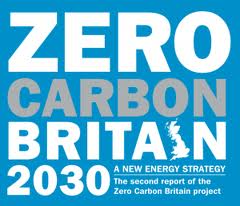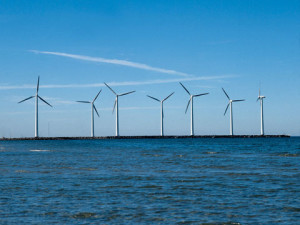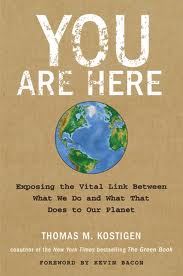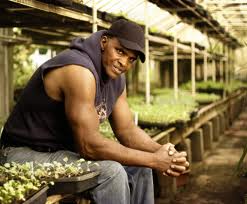Yesterday, Green Eatz attended a lecture on the vision for a Zero Carbon Britain by 2030: Dream or Reality?, organised by the British Council and presented by Peter Harper from the Centre for Alternative Technology in Wales.
A think-tank of academics and experts in Green Technology envisioned a Britain with a zero carbon footprint and then came up with a strategy on how it could be achieved. They have produced a 384-page report that can be downloaded for free at Zero Carbon Britain, but here it is summarized in just 1 blog post!
The Plan in a Nutshell!
The three major strategies in achieving a zero carbon society:
- Power Down – reduction in demand for power
- Power Up – energy production from low or carbon neutral sources
- Land Use – reduction in livestock and increased carbon storage
Zero Carbon Britain: Power Down
In Britain, energy usage needs to be reduced by 50% to achieve zero carbon. This sounds like a massive and impossible target, but the report shows how it can be achieved through a combination of reduced demand and improved efficiency.
- Refurbishment of existing housing and buildings to improve insulation and use energy conservation practices.
- New buildings to be constructed according to strict environmental codes.
- Usage of natural building materials to act as carbon stores.
- Shifting from private car use to public transport and car sharing.
- Switching of transport fuel from petrol to electricity with limited biofuels.
- Expansion of high-speed rail and sea networks to reduce aviation needs.
- Increased usage of internet technology to reduce transport needs.
Zero Carbon Britain: Power Up
Britain’s reputation as being a wet and windy country may now be its saving grace! Offshore wind power generation can be used for the majority of its electricity needs in 2030. Of course, this presents significant logistical problems, as it isn’t easy plonking an enormous wind turbine in a stormy sea and they are going to need an awful lot of them, but it is certainly a technically feasible option. It will also generate at least 300,000 jobs!
Small-scale local power generators are also part of the vision, where home-owners and small businesses can become part of the push for a zero carbon power supply.
Peter explained that they only considered options that are currently viable, known technologies. Nuclear power was not included due to the inherent problems with safety and nuclear waste storage. As the UK’s supply of North Sea oil and gas is no longer sufficient to cover all its power needs, moving to renewables removes its dependence on imported high-cost fuels.
The fluctuations in supply and demand also require careful management, and this will require co-operation with European countries to create a EU Power Grid.
Zero Carbon Britain: Land Use
At present, livestock farming and grazing accounts for 85% of the greenhouse gases associated with UK agriculture. The 2030 scenario increases the land devoted to crops and reduces livestock farming by around 25%. Cow and sheep stocks are particularly targeted due to the large land area required for grazing.
Meat protein reduces from about a half of protein produced to around a third. This switch to a diet based on a higher proportion of plant proteins matches up with recommendations given by the healthy food pyramid.
In this scenario, two-thirds of farm-land is freed up for other purposes. Some of this land will be used for producing biofuels whilst the remainder is needed for carbon sequestration. As it is not possible to create a society without any emissions, the aim is to offset this by the storage of greenhouse gases through soil management, increasing woodlands and growing non-food plants that are able to store CO2 (biomass).
Did you know that a quarter of your carbon footprint is produced by the food you eat? Find out how you can reduce that at Food’s Carbon Footprint.
‘Better’ not ‘More’
Peter’s personal motivation for becoming involved with this project was his concern for his grand-daughter and her future descendants. Most of the people in the audience were ‘greenies‘ that have already embraced the vision of saving the planet through direct action. So how do we convince the politicians and the general public that all this is possible and necessary to maintain our beautiful world for future generations. Peter suggested that starting a dialogue about Zero Carbon Britain with our friends and colleagues can help to kick-start new ways of thinking. He envisages a planet where we all dream of a Better Quality of Life rather than just trying to get More of Everything.
Although this vision has not been adopted by the UK government, their move to a zero carbon society is far advanced compared to Australia. By 2009, emissions had been cut by 21% compared to 1990 levels and their target is 34% by 2020. All makes Australia’s target of 5% by 2020 look rather shameful.
Let me hear your comments! How do we convince people to make small sacrifices for the greater good? And can Julia Gillard persuade the electorate to give their support for a carbon tax?










Trackbacks/Pingbacks